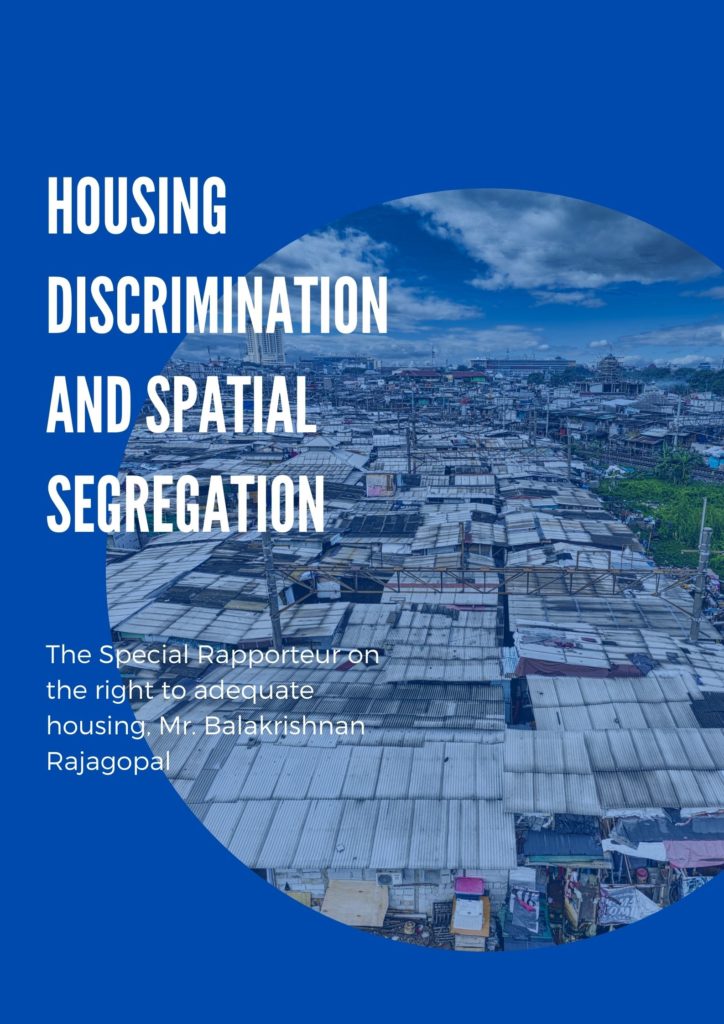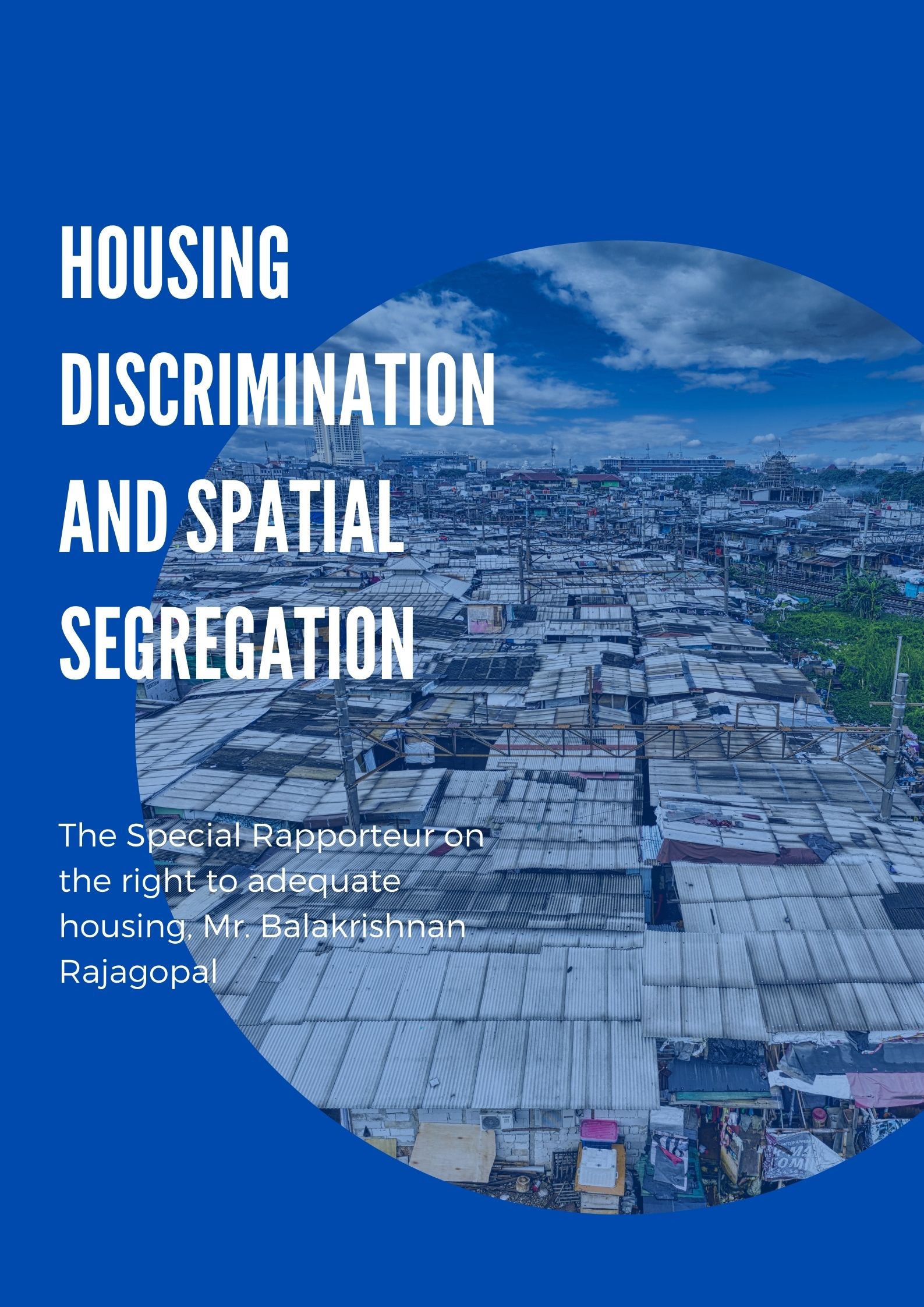The report from the UN Special Rapporteur on the right to adequate housing, Mr. Balakrishnan Rajagopal, draws attention to the fact that discrimination in housing continues to be one of the most pervasive and persistent barriers to the fulfillment of the right to adequate housing. Housing discrimination is a global problem, affecting many groups and all elements of the right to adequate housing. This includes lack of equal and non-discriminatory access to private and public housing, to building land or housing for rental.

HIC gathered inputs from its Members for this report [available here].
This report is the first of two interrelated thematic reports of the Special Rapporteur. His second report on spatial segregation and will be presented to the 49th session of the Human Rights Council in March 2022.
Key Recommendations
States, regional, local and other public authorities, public and private housing providers should as apropriate:
- Adopt comprehensive anti-discrimination legislation covering all protected groups, including women, children, persons with disabilities, LGBTIQ+ persons, migrants, IDPs and refugees, foreigners, racial, ethnic, religious groups and minorities, persons living in situation of homelessness and in informal settlements prohibiting any form of discrimination in relation to the right to adequate housing by all public and private entities, including public and private housing and credit providers.
- Review existing housing, tenant, land, building, town planning, zoning, banking, population registration, and social legislation and related regulations to ensure that they prevent and prohibit discrimination in relation to all elements of the right to adequate housing under international human rights law.
- Establish accessible and sufficiently resourced non-judicial mechanisms (equality bodies, ombudspersons, NHRIs, housing rights advocates) at local, regional and national level, that have the competence to investigate individual and collective complaints of housing discrimination, including systemic forms of housing discrimination, monitor discrimination in relation to housing through statistical analysis, surveys and other means, make recommendations for eliminating housing discrimination and provide legal advice and effective remedies to victims of housing discrimination.
- Collect and publish regularly data on housing and housing discrimination, disaggregated by age, gender, income, race, disability, ethnicity, religion, nationality, minority, IDP, refugee and residence status, sexual orientation, location, housing status (homeless, informal, formal, tenant, homeowner) and any other relevant group membership to monitor discrimination in relation to housing, covering habitability, affordability and accessibility of housing and services, security of tenure and access to justice and remedies.
- Establish sufficient compensation and reparation schemes for victims of discrimination in housing, especially those who belong to historically marginalized groups.
- Ensure that housing and anti-discrimination legislation provides sufficiently dissuasive fines and sanctions for housing discrimination by public authorities and private entities, including public and private housing providers.
- Undertake awareness raising campaigns for the general public, to ensure greater awareness of non-discrimination in the provision of housing and related services, especially focusing on groups at elevated risk of housing discrimination which have been historically marginalized.
Read the full report and all its recommendations.
Source: www.ohchr.org
